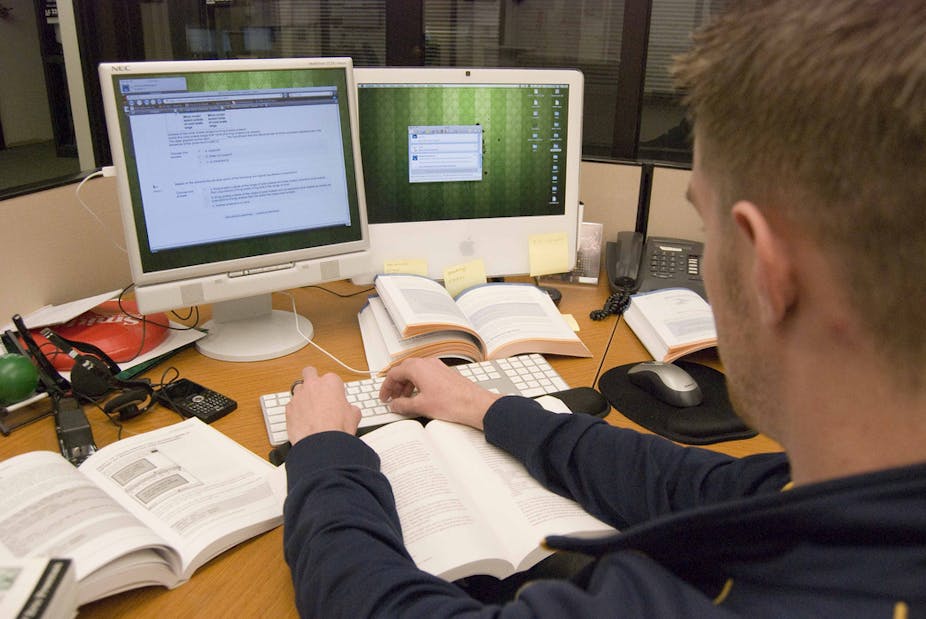Universities have been recording data digitally about their students for decades. No one would seriously question the necessity of collecting facts for administrative purposes, such as a student’s name and address, module choices and exam results.
But as teaching and learning increasingly migrate to the internet, huge amounts of data about individuals’ activities online are being accumulated. These include everything from postings on forums, to participation in video conferences, to every click on every university-hosted website.
Most of the records gather virtual dust in log files, never to be analysed by any computer system let alone viewed by a human. Universities have only recently started to realise the huge potential of using this data to help students succeed in their learning, or to improve the educational experience for others.
Privacy concerns
With these possibilities come dangers that the data could be used in ways undesirable to students. These include invading their privacy, exploiting them commercially by selling their data to third parties or targeted marketing of further educational products.
Meanwhile, well-intentioned pedagogical innovations which access the data may have unforeseen negative consequences, such as demotivating students who are told they are at risk of failure.
Institutions have clear legal responsibilities to comply with data protection legislation, restricting information from access by third parties and allowing students to view the data held about them when requested.
Universities are commercial organisations, but are also motivated by altruistic concerns such as enhancing the life chances of individuals through education. The multinational technology corporations which we unquestioningly allow to collect vast amounts of data about us have altogether different motivations.
For them, your data is of immense commercial value, enabling products to be targeted at you with increasing relevance. Most educational institutions need to act differently from for-profit organisations when dealing with users’ data.
What’s being done with the data?
Predictive modelling enables institutions to build a profile of a student. This can include information they have disclosed about themselves in advance of study, such as prior qualifications, age or postcode. This can then be mapped onto records of their online activity and assessment performance.
Predictions can then be made as to the likelihood of a student dropping out or what grade they can be expected to achieve. The Open University is developing models to target interventions at students thought to be at risk.
For example, a student who has no prior qualifications and has not participated in a key activity or assessment may be flagged for a telephone call by a tutor. Experience has shown that such a call may be what is required to motivate the student or help them overcome an issue which is preventing them studying.
Various ethical issues emerge here. If we establish early on that a student is highly likely to fail, should we advise them to withdraw or to re-enrol on a lower level course?
But what if we are limiting their opportunities by taking such an intervention? They might have continued successfully had we not intervened. Meanwhile, for those students thought not to be at risk, we are potentially denying them the possibility of beneficial additional contact with a tutor.
Opt out option
If the primary purpose of learning analytics is to benefit learners, then should a student be able to opt out of their data being collected?
There are two problems with this. We may be neglecting our responsibilities as education experts by allowing some students to opt out. This could deny them the assistance we can provide in enhancing their chances of success. The data collected can also be used to benefit other students, and every individual opting out potentially diminishes the usefulness of the dataset.
One environment where a student might reasonably assume they are free from data being collected about them is while accessing an e-book offline on a personal device such as an iPad or a Kindle.
Some US institutions are already providing students with e-reader software which captures data such as clicks and dwell times, storing them on the device and uploading it to a server for analysis. But unless users are made aware that this is happening, universities run the risk of being accused of unjustified snooping.
It is unclear to what extent the constant collection of data on online activity inhibits learning or even worries students. Do students care any more about what universities do with data on their educational activities than they do about the data collected by Google or Facebook on their personal interests, relationships and purchasing habits?
But the trust given to universities by students elevates the importance of caretaking their data and establishing clear policies for what we do with it.
Transparency about the data we collect, and how and why we are using it, will help to avoid a backlash from learners worried about potential misuse. Institutions need to develop clear policies arguing why the collection and analysis of data on students and their learning is in their interest. This is a necessary step before being able to exploit the full potential of learning analytics to enhance the student experience.

